Things to Do in Krakow in 4 Days
Four days in Krakow will give you plenty of time to get to know the city and the Auschwitz concentration camp in depth. I'll give you all the details to make the most of your time.
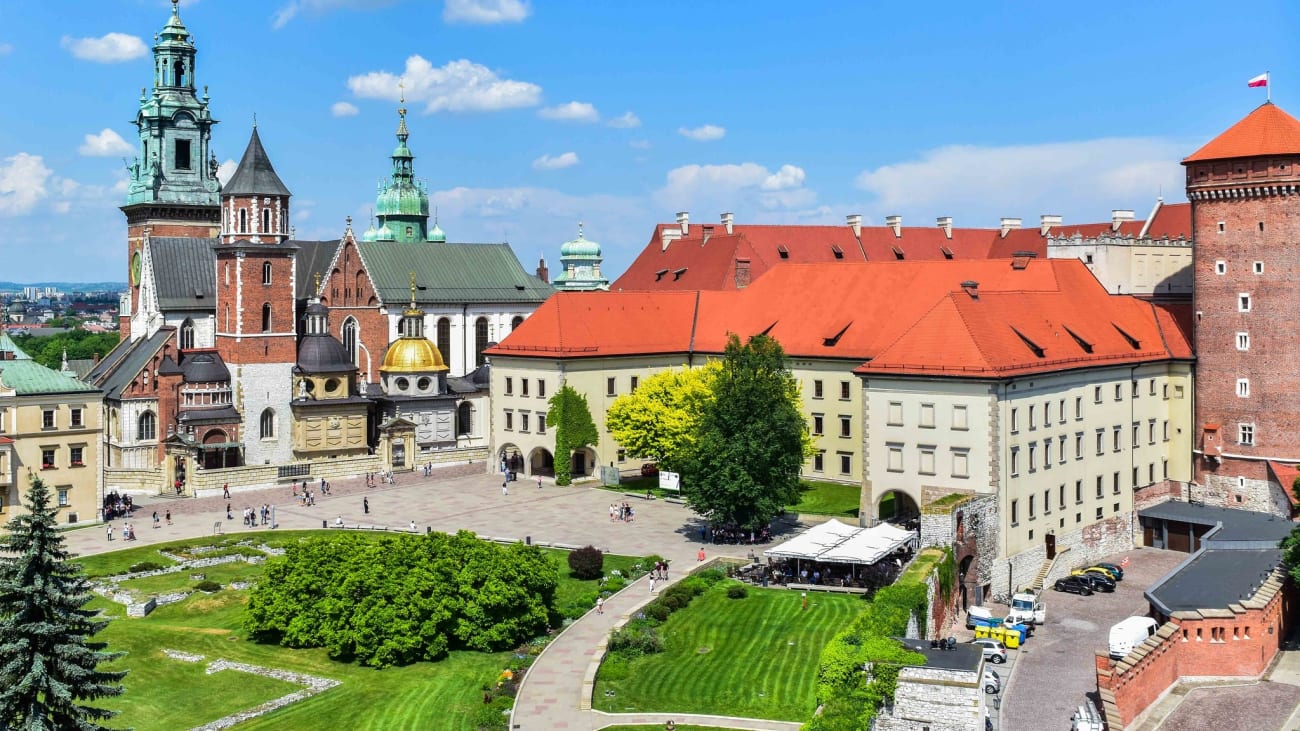
Wawel Castle and Cathedral in Kraków | ©Naval S
Although 4 days in Krakow are not many, they are enough to enjoy the most magical places that the city (and its surroundings) has to offer. However, it's normal that you don't know which places are the must-sees, and which ones you don't mind leaving behind.
But you've come to the right place because I want to tell you about one of the most complete ways to get to know this Polish city, which was once the capital of the country, in just a few days.
Day 1: Get acquainted with the city
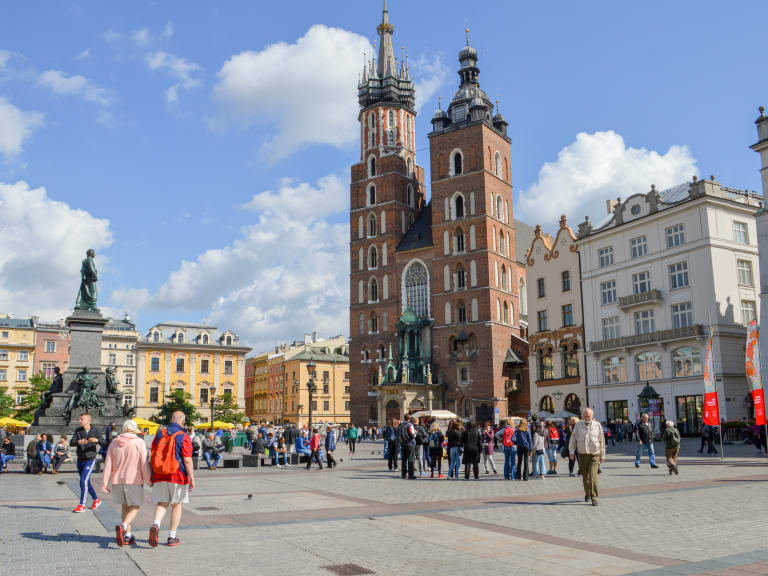
Kraków is a medieval gem and any long weekend in this city should start at the Market Square. From there you can easily reach the main sights - are you ready? Let's discover the best of Krakow!
Start your holiday with a traditional breakfast
Are you familiar with Polish breakfast? In the northern European country, the first meal of the day is also the most important one, so much so that at 11:00 they usually have a second one.
Locals usually start the day with a slice of bread with kielbasa (a flavoured sausage), scrambled eggs or quark cheese with radishes. Hard-boiled eggs and herring can complete the menu.
Many establishments on the Market Square offer a traditional breakfast:
- Smakolyki (28 Straszewskiego Street).
- Dynia: particularly recommended for the warmer months as it has a beautiful garden (Krupnicza Street 20).
- Moment Resto Bar & Music: recommended if you are staying in the Kazimierz district (Estery Street 22).
Stroll through the Old Town
Until the 16th century, Kraków was the capital of Poland. King Sigmund III Vasa moved his court to Warsaw, but he couldn't take the splendid buildings that make up the city centre with him.
This area is very compact and can easily be visited on foot alone or on a tour of the Old Town. On your tour, you will see a number of fascinating monuments:
- Market Square (Rynek Główny): one of the largest squares in Europe. It is surrounded by colourful houses while in the centre stands one of the symbols of the city, the Lonja de los Paños, an old market which has retained its commercial vocation.
- Floriańska Street (ulica Floriańska): one of the most prestigious shopping streets in the country. It is part of the Royal Route, an old route leading to Wawel Hill.
- Wawel Hill: a mound overlooking the city. Here you will find the cathedral, Krakow Castle and a large cave where, according to legend, a dragon lived and tormented the locals.
- St. Mary's Basilica (Kościół Mariacki): the main church in the Old Town, easily distinguished by its asymmetrical towers.
- Barbican- one of the best preserved medieval fortifications in Europe. It was built to control the nearby St. Florian's Gate.
Relax in the greenery of the Planty Park

After visiting the Barbican, you will only have to walk a few metres to Planty Park, a green ring around the city- no other city in Poland can boast such a beautiful place!
This urban garden came into being at the beginning of the 20th century, when the city authorities decided to convert the city walls into a leisure area.
Today, Planty Park is divided into eight gardens stretching for about 4 km.
End the day with a well-deserved dinner
To appease your hunger, there's nothing better than some good ribs. In Kraków, if you want to try this dish, head for Plac Dominikański 2. Here you will find the Rzeźnia restaurant, a place for hardened carnivores.
If you're not in the mood for ribs, you can opt for Polish tartar or Buffalo-style chicken wings. At Rzeźnia, the portions are very generous and you can accompany them with a few shots of local vodka. No work tomorrow, right?
And if you fancy something more special, you can kill two birds with one stone by dining while enjoying a Polish folklore show at a legendary city restaurant in the centre of Kraków. The choice is yours!
Day 2: Immerse yourself in a magical place
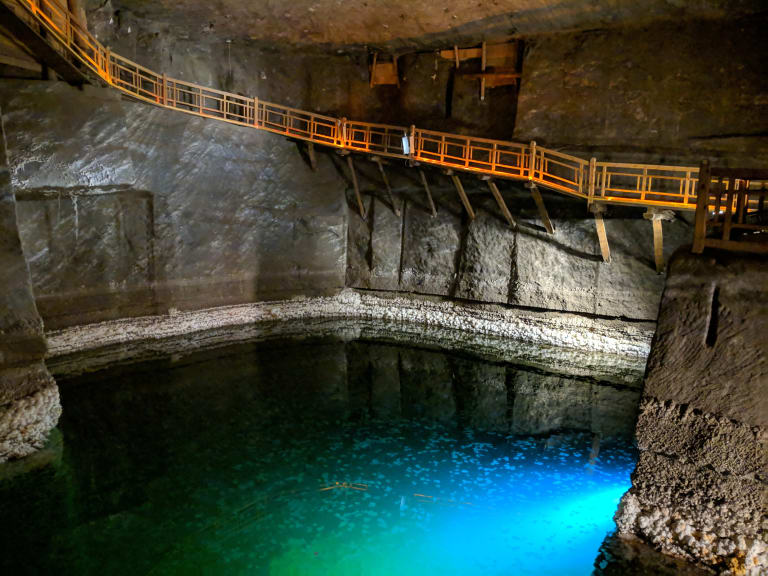
After you've seen the Old Town, you can take a trip that will take you down to the centre of the earth. Naturally, we're talking about a trip to the Wieliczka Salt Mine, a magical place just a few kilometres from Kraków.
Spend a morning at Wieliczka Salt Mine
The Wieliczka Salt Mine is located about 15 km from Krakow and is a popular destination for tourists and locals alike.
The mine was opened in the 14th century and its development is largely due to the efforts of King Casimir III the Great who granted many privileges to the miners and founded a hospital to cure them.
This magical place has a depth of 327 metres and is traversed by a network of chambers and galleries dotted with sculpted figures. Here is a brief list of its most famous attractions that you can visit on a trip to the Wieliczka Salt Mines from Kraków:
- St. Kinga's Chapel: the flagship of the mine. This place of worship was carved by two visionary brothers over 30 years of work.
- Weimar Chamber: the biggest attraction is its tiny illuminated lake.
- St. Anthony's Chapel: a baroque monument carved out of a block of green salt. It is decorated with figures of saints and has a pulpit carved entirely out of salt.
- Gołuchowski Chamber and its station: during the 19th century, miners used an underground railway and the station was located in this very environment.
- Spalone Chamber: the most "explosive" place in Wieliczka. Salt men with long sticks in their hands remind of the workers who risked their lives the most, the burners. Their task was to burn the methane before its concentration caused an explosion.
Stroll through the Kazimierz Quarter
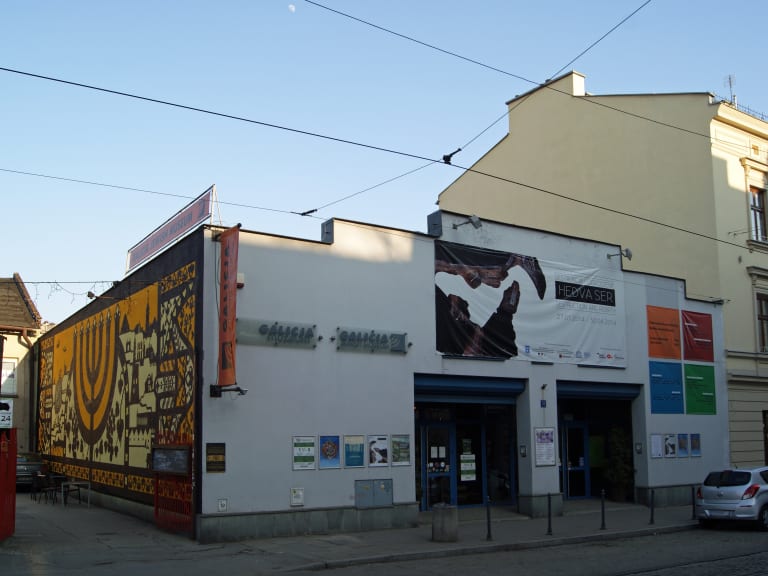
In the 15th century, Jews were expelled from Kraków and eventually moved to this district. Before World War II, about 60,000 Jews lived here and were engaged in everything from catering to handicrafts.
But in 1941, the Germans came to the city and drove the inhabitants out of their homes. The Jews ended up living in the Podgórze quarter or in the Auschwitz and Dachau concentration camps.
After the conflict, Kazimierz fell into oblivion and only in the 1990s did it return to its former glory, so you can now take a tour of the Jewish quarter to get to know it. Today, the former Jewish ghetto is Kraków's most vibrant neighbourhood. The past comes alive in the synagogues and at night, the streets come alive with a wealth of entertainment:
- Klub Piękny Pies: ideal for a drink and indie, soul or grunge music (Plac Wolnica 9).
- Alchemia: possibly the best known bar in Kazimierz.
- For more info, I recommend reading the post What to see and do in Krakow's Jewish Quarter.
Treat yourself to a traditional restaurant

Among the restaurants linked to tradition, the Czarna Kaczka deserves a special mention. Its name means "black duck" and, as you can imagine, it specialises in this type of meat. Here you can taste:
- Cracow roast duck with horseradish and mushroom sauce.
- Magret of duck in red wine with red cabbage dumplings and dried plums.
- Freshwater fish such as trout fried in butter or pike-perch fillet.
- Vegetarian dishes include excellent potato pancakes.
But if you want to make the most of your visit to the Jewish Quarter, you can sample the dishes and soak up the culture on a food tour of Kazimierz.
Day 3: Get out of town to see the worst legacy of WWII
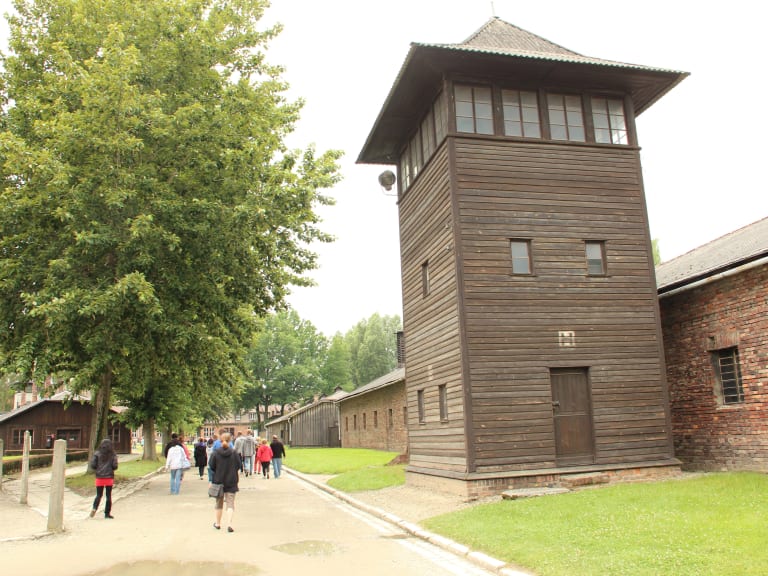
Auschwitz-Birkenau is a memorial to human cruelty. Having four days, I recommend you to visit this notorious place.
Visit the notorious Auschwitz concentration camp
This concentration camp claimed the lives of 1.1 million people. As the Second World War drew to a close, the Nazi authorities attempted to destroy evidence of the genocide, but fortunately the liberation of the camp in January 1945 prevented the process from taking place.
After the conflict, the Polish government decided to restore Auschwitz-Birkenau as a memorial and museum. Since 1979, the lager has been a Unesco World Heritage Site and receives more than 2 million tourists each year.
Visiting Auschwitz from Kraków is possible, but it is tantamount to reliving a horrific page in contemporary history. However, knowledge is awareness.
- The article How much does it cost to visit Auschwitz: ticket prices and guided tours explains point by point all the options available. I advise you to choose a morning visit, so that you can return to Krakow for lunch.
Return to Krakow for lunch

Auschwitz-Birkenau is very large and much of your time will be spent walking through barracks and open fields. Although the place will make you feel sick to your stomach, you might get hungry on your way back to Kraków. A good way to satisfy your hunger is with pierogi, the quintessential Polish comfort food.
There are dozens of specialised places and two of the most popular are:
- Pierogarnia Station- using the recipe of Ula (the owners' aunt), there are eight establishments both in the centre and on the outskirts of Kraków.
- Robimy Pierogi: a food truck in the Kazimierz district (21 Dajwór Street), ideal if you don't feel like sitting down and prefer to take pierogi to go. Their dumplings are handmade according to traditional recipes.
Enjoy a pleasant boat ride
After such a challenging day, a relaxing activity is ideal. As you know, the capital of the Lesser Poland Voivodeship (Małopolska) is bathed by the Vistula, a river that rises in the Carpathian Mountains and flows into the Baltic Sea. And on a Vistula river cruise you can admire buildings and monuments from a different perspective.
Cruises depart from Kraków's river port (bulwar Czerwieński) and last about an hour. There are various types of boats available depending on the season and/or time of day and most of the excursions are audio-guided.
Day 4: Last shopping

On the last day you can spend your last day shopping and enjoying some original experiences - make the most of every last minute!
Buy some souvenirs in the Cloth Market
A holiday can't be complete without a few small souvenirs, and the ideal place to do this is the Lonja de los Paños (Cloth Exchange).
Underneath this majestic building there are dozens of food, craft and souvenir stalls. We have prepared a small list of the most typical souvenirs of Krakow:
- Amber jewellery: Kraków was an important stop on the Amber Road, a trade route that started at the Baltic Sea. The prices are surprisingly competitive at the Amber Market.
- Regional costumes
- Hand-carvedchess sets: in Poland there is a peculiar hexagonal version that you will hardly see elsewhere.
- Wickerwork
- Żubrówka: the excellent local vodka, recognisable by the bison on its coat of arms.
- Ceramics.
- Obwarzanek krakowski: a braided bread that resembles a bagel.
Stroll through the courtyard of the Collegium Maius

This is the oldest university building in Kraków. Built in the 15th century, the building is famous for the clock in the courtyard. Every two hours, between 09:00 and 17:00, wooden figures appear and parade accompanied by traditional music.
If you feel like it, you can visit the Jagiellonian University Museum, which houses a collection of astronomical and astrological instruments dating back to the second half of the 15th century.
End your long weekend with a unique experience
After dinner, you can bid farewell to the Polish city with a bit of adrenaline: axe-throwing. It has become a real discipline, so much so that there are professional leagues and the international championship is broadcast on ESPN.
In Krakow, the place to go is Axe Nation. You'll find it at 46 Grodzka Street, not far from the Church of St. Peter and Paul and the Archaeological Museum.
However, if you fancy something even more adventurous, you can book a shooting range experience in Krakow. However, in this case you'll have to do the activity before dinner, as it's just outside the city.
